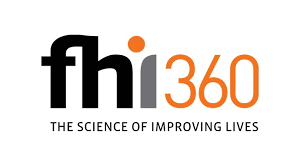As of December 2019, FHI 360 has exceeded its US$3 million financial pledge to FP2020. Since the 2012 London Summit, FHI 360 expended US$4.1 million of its own resources to support the development and introduction of new, highquality, affordable contraceptives.
With these funds and funding from the Bill & Melinda Gates Foundation, our partner Shanghai Dahua Pharmaceutical Co. Ltd. (Dahua) achieved prequalification from the World Health Organization (WHO) in 2017 for its two-rod contraceptive implant, Levoplant — also referred to as Sino-implant (II). In 2018, Dahua announced an additional price reduction to US$6.90 per unit. In addition, DKT International became their global distributor and just over 1 million units were procured globally. By introducing competition into the contraceptive market, the product has also helped reduce the price of contraceptive implants overall.
FHI 360’s financial and program commitments to FP2020 are also reflected in our research and development of new contraceptive products, including biodegradable implants, longer-acting injectables, microneedle patches, and alternative copper IUD designs. FHI 360’s own resources are leveraged with funding from USAID, the Gates Foundation, and the National Institute of Child Health and Human Development.
FHI 360 is leading the LEAP LNG-IUS initiative, a project to generate evidence to determine if and how expanded access to the levonorgestrel- releasing intrauterine system (IUS) – also known as the hormonal IUS - could increase contraceptive use and continuation rates in sub-Saharan Africa. This Gates-funded project builds on previous FHI 360 research and advocacy to support the introduction of the hormonal IUS into FP2020 countries.
FHI 360 continues to contribute towards its policy commitment with research, advocacy, and programming. As part of the consortium that led the Evidence for Contraceptive Options and HIV Outcomes (ECHO) Study, FHI 360 helped generate crucial data to address questions about the relationship between hormonal contraceptive use and the risk of HIV acquisition. The ECHO Study, which began in 2015, found no substantial difference in HIV risk among the 7,829 African women who were randomly assigned to use one of three methods of contraception: the progestin-only injectable depot-medroxyprogesterone acetate (DMPA-IM), a nonhormonal copper intrauterine device (copper IUD) and a progestin implant containing levonorgestrel (LNG implant). Results were published in The Lancet in 2019.
We also continue to support the generation of evidence on and advocacy for task-sharing for family planning. FHI 360 led the first randomized controlled trial of self-administration of subcutaneous DMPA (DMPA-SC). Results published in 2018 in Lancet Global Health showed that self-administration significantly increased contraceptive continuation rates. The study also demonstrated that community-based health workers can safely train women to self-inject DMPASC. This research was supported by USAID and the Children’s Investment Fund Foundation.
Our research and advocacy also contributed to the recent decision by the Ugandan National Drug Authority to allow private drug shops to administer injectable contraceptives.







